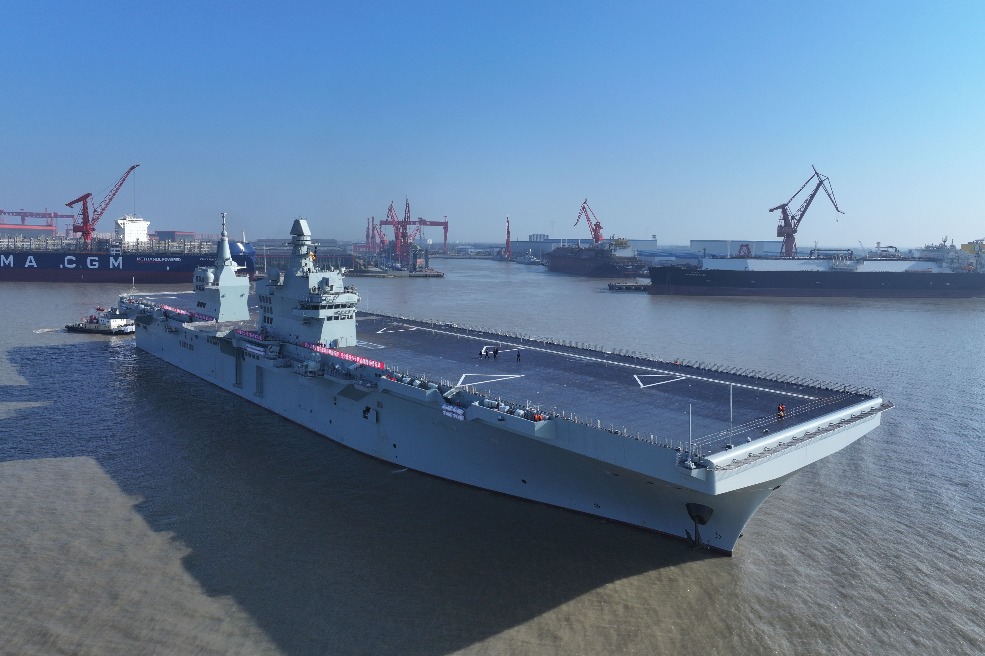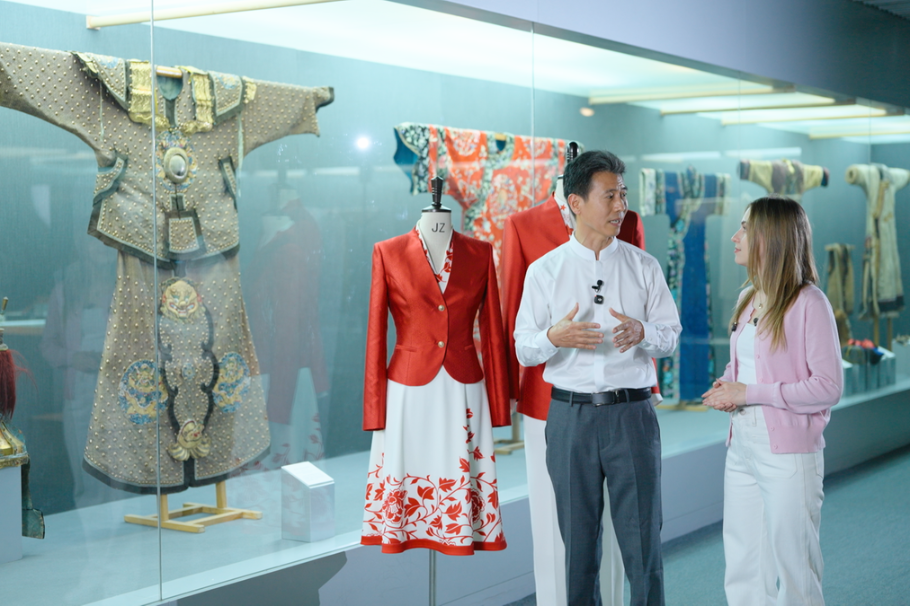Turning a new leaf
Brazil, China and the EU can work together to accelerate realization of an end to deforestation

Brazil, China and the EU can work together to accelerate realization of an end to deforestation

Deforestation remained at the core stage of the 28th session of the Conference of the Parties to the United Nations Framework Convention on Climate Change (COP28), alongside discussions on phasing out fossil fuels, driving renewable energy production and increasing energy efficiency.
It has been two years since 145 countries signed the Glasgow Leaders' Declaration on Forests and Land Use during COP26. However, the outlook for this global vision is not rosy. According to the 2023 Forest Declaration Assessment, global gross deforestation reached 6.6 million hectares worldwide in 2022 and was 21 percent higher than needed to eliminate deforestation by 2030.
The delinking of deforestation and the soft commodity trade is indeed complicated since the vastly different stakeholders along the value chain still harbor varied and sometimes even conflicting understandings of some core issues such as smallholders' livelihoods, food security, trade policies, supply chain resilience and geopolitical tensions, to name a few.
Where is the breakthrough?
Brazil is playing a crucial role in feeding the planet as a major producer of agricultural commodities and a supplier to international markets. More than 50 percent of the world's soybean consumption comes from this country.
The European Union and China are the two most important trade partners for Brazil for the development of its agricultural industry. Exports of products covered by the European Union Deforestation Regulation (EUDR) are estimated to have reached $17.5 billion in 2022. While China imported 54.39 million tonnes of soybeans from Brazil in 2022, and imports from Brazil accounted for more than 50 percent of China's total beef imports.
Seen from this perspective, removing deforestation from the soft commodity trade among China, the EU and Brazil can be a key entry point that could transform the whole sector, stabilize the soft commodity supply chain and reduce deforestation in Brazil.
In recent years, both the supply side and the demand side have been working on halting deforestation, either through stronger trading requirements, more sustainable financial incentives or better reporting and monitoring systems. However, synergy among these individual endeavors is much needed.
In June 2023, the arduously developed EUDR was finally launched. This legislation aims to ban the import and trade in the EU of products derived from certain commodities — cattle, soy, palm oil, coffee, cocoa, wood and rubber — from areas deforested after Dec 31, 2020.
Though hailed by some as great news for Indigenous people and wildlife, the effectiveness of the EUDR will be limited unless it is in line with relative actions in the tropical forest countries where the commodities are produced. An inclusive and diverse international cooperation mechanism must be established, where dialogue, consensus and collective actions between producers and emerging consumer countries can happen. One urgent topic could be the identification and classification of different areas' risk levels within EUDR. It is necessary for the EU to look at the division between high-risk and low-risk classification not just for different regions or countries, but also recognize the fact that within a country there may also be a distinction between high-risk and low-risk areas.
China can play a role in linking the Global South and the Global North. Through mainstreaming the deforestation agenda into a wide range of international collaboration mechanisms such as the Belt and Road Initiative and the Global Development Initiative, China is in a good position to lead economic development and environmental protection in tandem.
Brazil's new harvest plan offers unprecedented incentives based on sustainability criteria. The Brazilian government is also launching an ambitious program to promote the reclamation of up to 50 million hectares of degraded pastures, which has the potential to double production without any new deforestation. This will require a considerable amount of investment, in which China, the EU and other economies can play an important role.
The private sector, especially large traders, holds a pivotal role in limiting commodity driven deforestation. Within this complex supply chain, traders are in a central position to engage with both upstream producers and downstream consumer-facing companies. For soybean imports, Bunge, Cargill, COFCO International, Louis Dreyfus and Wilmar together account for over 80 percent of the soybean supplies that enter the Chinese market. To fully unleash the power of the private sector, the Tropical Forest Alliance launched the Taskforce on Green Value Chains in China to encourage the global supply chain companies who enter the Chinese market to make deforestation-free commitments and regulate their supply chains.
In the process of mobilizing businesses, capital is a good lever. Investors can demand their investees to make commitments and regular disclosures. For example, LGIM, one of Europe's largest asset managers, has required all its more than 700 investees in the high-risk sector to make zero-deforestation commitments, publicly disclose how they manage deforestation risks and conduct suppliers' traceability, otherwise it will divest the portfolio share.
In fact, a corporate commitment to sourcing deforestation free soft commodities is a strategic decision and choice that does not necessarily imply a concession on benefits. Data shows that taking this zero-deforestation leap is not as operationally complicated or financially unaffordable as people might think. Based on the soybean yield in Brazil, to produce each ton of soybean in high deforestation risk areas, on average 0.32 hectares of tropical rainforest could be cut and/or converted to agricultural use. About 2.99 million hectares of tree cover was lost in Brazil in 2021 and 3.31 million hectares in 2022, of which an average of 18 percent was driven by oilseeds. This amounts to a total of 1.134 million hectares of tree cover loss driven by oilseed production. That is to say, taking the cut-off date as Dec 31, 2020, there are 3.54 million metric ton of soybeans produced in Brazil are deforestation related. That is less than 6 percent of China's total imports. In other words, there is a considerable wiggling room for importing businesses.
In April, Mengniu Dairy Group became the first Chinese business in the sector to commit to achieve "zero deforestation" by 2030 and eliminate the risk of deforestation in its supply chain. During the sixth China International Import Expo in Shanghai in November, Mengniu's Modern Farming signed a memorandum of understanding with COFCO International on the sourcing of Brazilian soybeans with zero deforestation. This is the first Brazil-China soybean deal with a clear deforestation and conversion-free clause, releasing a positive market signal from China to the global soft commodity market.
To put a full stop to global deforestation, it is imperative that all countries reduce deforestation and forest degradation both at home and abroad. This requires us to double down on building regulatory synergy and mobilizing the private sector.
The author is head of Nature Initiatives at the World Economic Forum. The author contributed this article to China Watch, a think tank powered by China Daily.
Contact the editor at editor@chinawatch.cn


































